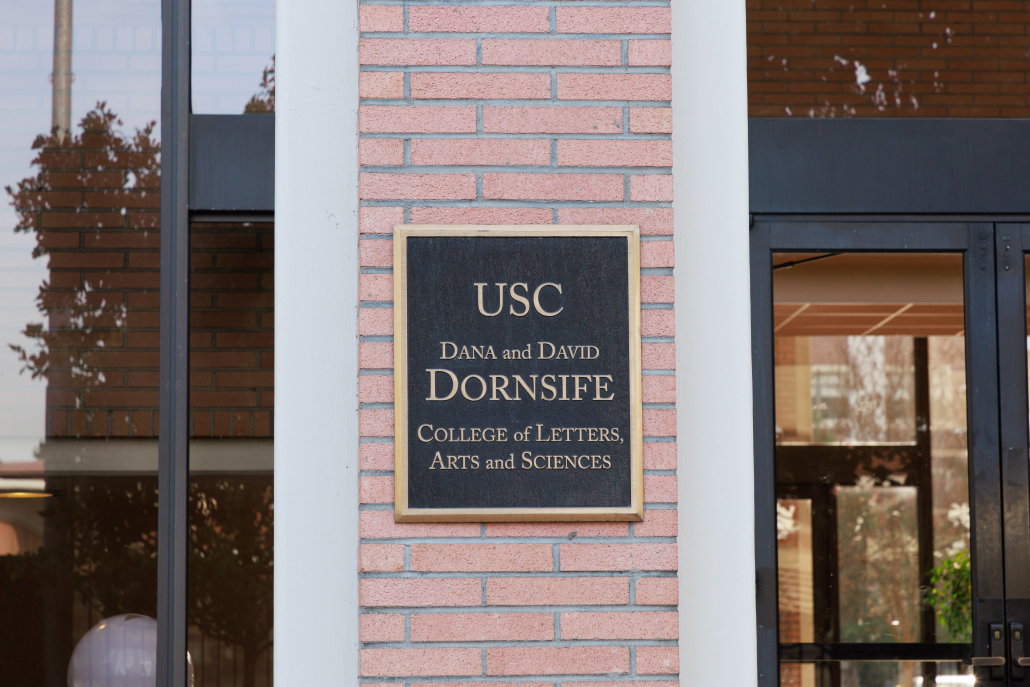Jamie Raskin talks new memoir

Rep. Jamie Raskin from Maryland recounted his experience with the Jan. 6 attack on the United States Capitol in a wide-ranging conversation hosted by Center for the Political Future Co-Director Robert Shrum to promote Raskin’s new memoir, “Unthinkable: Trauma, Truth, and the Trials of American Democracy.”
The event, held Wednesday night, included discussions about gerrymandering — a process by which political parties manipulate congressional maps for their parties’ gain — reforming the electoral college and the breakdown of bipartisan politics.
Raskin attributed much of the breakdown to the GOP, calling it the “gerrymander only party”.
Raskin’s memoir delves into the loss of his son, Tommy, to suicide, the insurrection and the subsequent impeachment trial of former President Donald Trump, all of which occurred within a 45-day period.
As the primary author of Trump’s second impeachment articles, the lead manager of the impeachment and a member of the House committee investigating the Jan. 6 insurrection, Raskin took part in the events following Jan. 6.
Mere days after his son’s death, Raskin found himself ushered out of the House chamber during the siege. But Raskin said he did not feel afraid in the moment.
“The very worst thing that could ever happen had already happened,” Raskin said. “What were these fascists going to do to me that could be worse than what I’d already experienced?”
Raskin’s talk was a part of the Bully Pulpit speaker series hosted by Shrum and CPF Co-Director Mike Murphy, in which Shrum and Murphy invite Republicans and Democrats to discuss pressing political issues.
“What we try to do with this programming is expose people to different points of view across the political spectrum and encourage them to be active in public life, or at least as attentive public citizens,” said Shrum in an interview following the event.
Following discussion about gerrymandering, Raskin also spoke about his role as impeachment manager and how he believed “right up until roll was called” that the Senate would convict Trump. Raskin, who thought former Senate majority leader Mitch McConnell would defect to the Democrats’ side, said he saw McConnell “crying at a number of different points” during the Senate trial.
“I really thought that the evidence was so overwhelming and so irrefutable and certainly unrefuted at trial that the Republican senators might say to themselves, ‘This is our opportunity to break from this autocratic maniac,’” Raskin said. “And I think that that was probably what was going on inside Mitch McConnell’s heart.”
Fifty-seven senators voted “guilty” in the senate trial — with seven Republican senators joining 50 Democrats — falling short of the 67-33 margin needed for a conviction.
Cole Dubrow, a sophomore majoring in political science and Spanish, said he was excited for the event and particularly enjoyed the Q&A portion.
“It was such a great experience to have someone of that caliber, like a representative in Congress, come and speak to us,” Dubrow said. “I got to ask a question and he answered, which is a really unique opportunity. To feel listened to and heard by representatives is really awesome.”
Raskin’s proximity to the Capitol attacks, which have had heavy implications for the future of democracy, especially interested event attendee Tawfiq Othman, a freshman majoring in architecture.
“I find it really interesting that he’s able to give insight, since he was kind of at the center of it, the historic events,” Othman said.

